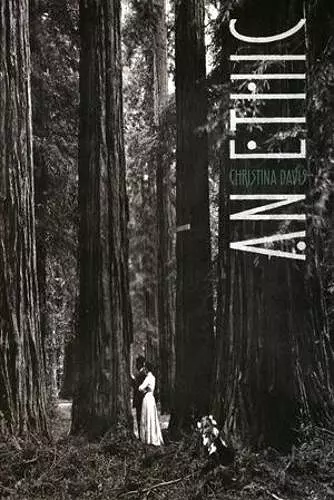An Ethic
Format:Paperback
Publisher:Nightboat Books
Published:11th Apr '13
Currently unavailable, our supplier has not provided us a restock date

Christina Davis's An Ethic begins with the death of a loved one and proceeds to widen the gyre of that loss-as constructs of here and now, near and far, human and animal begin to fall away or be questioned. Compared by Forrest Gander to the works of George Oppen, this minimalist meditation looks back to the 19th century ideals of Muir, Thoreau and Whitman, and forward to a new unity.
Despite its minimalist aesthetic, Davis's second collection is anything but coy; the poems are slim and brief, but not light. The collection, which begins its considerations of grief and absence with a father's death and widens outward, is inaugurated with a single conviction: "There is no this or that world." What follows is a rigorous meditation on this premise, a refusal of the notion that one passes from presence into absence, from life into death, as if by bridge or tunnel. Rather, presence and absence, life and death, coexist--and we are daily challenged to reconcile their simultaneity. Perhaps this is an idea that is best taken small bites, as not to overwhelm; the poem "Addendum" is simply: "Who was it said: 'AND/ is the greatest/ miracle'? Praise// be his/her name." And yet, the poems overwhelm, overflow with syntactic attempts to embody the slipperiness of coming to terms with the paradoxical mass of an absent thing, the weight of the hole. These poems are as conspicuously minimal as they are unsuspectingly heavy, and it is by achieving both of these effects at once that they prove that we and our grief are blessed to occupy the same space.
Copyright 2013 Publishers Weekly, LLC Used with permission.
In his foreword, poet Forrest Gander (Core Samples from the World, 2011) describes Davis’ lyrics as taut vectors that extend “beyond easy finalities, into an always unforeseen.” This uncertainty and inconclusion define Davis’ second collection, composed with brevity and concision, some poems comprising a dozen words or fewer. “Till Human Voices Wake Us” consists of 17 syllables in a rhythmic whisper: “In the history of language, / the first obscenity was silence.” Sinuous omission, white space, and sparseness permeate the work. Yet Davis’ stanzas harbor a disconcerting inertia, kinetic phrases, and fragments filled with quick shifts and strange accelerations, as when the speaker in one poem “didn’t know there were coyotes / till the disappearance / of the little dogs, or deer until / the windshields shattered.” In this way, Davis brings vivacity crashing into absence. So, too, in “Transcript,” which turns a question of aesthetics onto the reader: “In the presence / of the unfinished we are / invited to look / in both directions, in case / the Empty is us.” --Diego Báez
“Here is a book that has flapped up out of the startled dark of a parent’s death. Into the moment of recognition of a life apart. A part of life. The syntax, precise and probing, repeatedly extends beyond only apparent completions, beyond easy finalities, into an always unforeseen. As though a living hand were reaching out of the poem and—.” (Forrest Gander)
ISBN: 9781937658090
Dimensions: unknown
Weight: unknown
66 pages